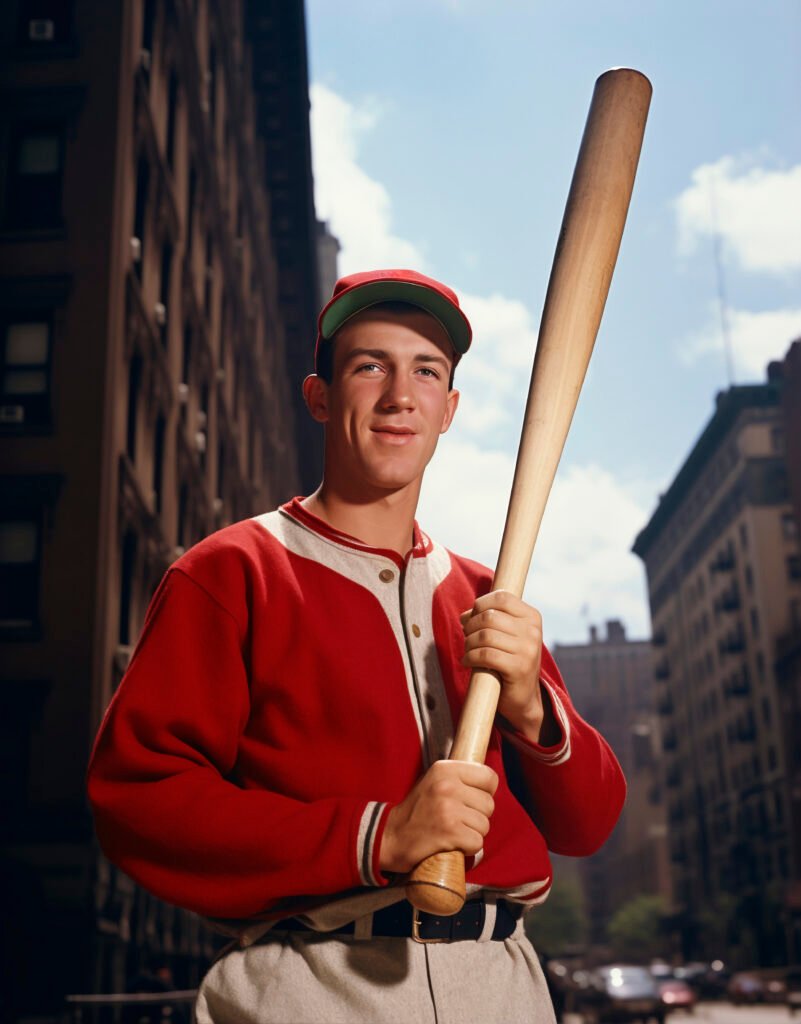
The Positive, the Negative, and the Absurd Aspects of MLB’s Decision to Posthumously Lift Pete Rose’s Ban
After decades of preparation, Major League Baseball made a historic statement on Tuesday. The guy known as “Charlie Hustle” during his illustrious career, Pete Rose, was formally deemed no longer permanently barred from baseball because of his gambling tendencies by Commissioner Rob Manfred. Years too late, the announcement ultimately achieved a peculiar balance between irony, tragedy, and justice.
The Virtuous
Let’s begin with the good: Rose’s lifelong suspension from the game has finally been lifted. This makes it possible for him to be considered for Baseball Hall of Fame induction. By the time his 24-season MLB career ended in 1986, a man had already earned his spot in Cooperstown, and now he has an official opportunity to be inducted.
Rose had a remarkable playing record. With 4,256 hits, he holds the record for most hits ever. He was a fan favorite because of his commitment, work ethic, and pure passion for the game. A bronze plaque honoring his on-field accomplishments may finally be placed in Cooperstown in 2028.
The Negative
The timing is the awful part, though.
Why did this decision not happen until after his death? At the age of 83, Pete Rose died in his Las Vegas home in September. While he was still alive, MLB had decades to rescind the ban. Why wait until he was unable to celebrate his own redemption? That wait seems needless, cruel, and ultimately quite depressing.
Rose was blamed for his activities for years by supporters, former players, and even some officials. That even though his punishment was severe, it had taken much too long. While he was still alive, they thought he should be forgiven. Regretfully, the league failed to take prompt action.
The ludicrous
Then there is this story’s ridiculous aspect.
Everyone who knew Pete Rose’s background and baseball knew that this day would arrive, but not while he was still living. Many people thought the prohibition would cease the moment he stopped breathing. Ironically, Pete Rose was the only one who was aware of that.
Rose, who was well-versed in baseball politics and history, frequently alluded to the fact that his election into the Hall of Fame would probably not occur until after his passing. “So depressing. So needless. The only way to characterize how it all transpired is “so ridiculous.”

What Takes Place Next?
Rose is eligible to be considered for induction in 2028 now that the ban has been formally lifted. He must first be nominated by the Historical Overview Committee for the 2027 Classic Baseball Committee ballot. He will then require a minimum of 12 votes out of 16 from a panel consisting of four historians, four executives, and four former players.
He’s likely to win the votes.
Let’s not pretend that gambling was the only source of Rose’s problems. In addition, he was accused of everything from tax evasion to statutory rape. It was never the intention of the Hall of Fame to serve as the “Hall of Saints.” Kenesaw Mountain Landis, Ty Cobb, and Babe Ruth were all legendary athletes with troubled pasts. Baseball greatness, not moral perfection, has always been acknowledged by the Hall.
What Should Have Been a Rose-Only Moment
The sole focus of Commissioner Manfred’s remarks ought to have been Pete Rose. Rather, the bans on a number of other deceased players were lifted as part of a larger sweep. His defense? The idea that a deceased person “can no longer pose a threat to the integrity of the game.”
In a letter to lawyer Jeffrey M. Lenkov, who had asked that Rose be taken off MLB’s list of players who are permanently ineligible, Manfred brought up this issue. During a White House event in April, former President Donald Trump even encouraged—some say pressured—this decision.
Rose’s name has been cleared, which is fantastic, but the decision’s timing and wording seem strange. Broader reconsiderations, like the ones involving Shoeless Joe Jackson and other Black Sox players, might have been better off being postponed by MLB.
There Are Now More Important Questions
This ruling paves the way for far more extensive discussions.
Will MLB now reconsider the penalty (or lack thereof) imposed on the Houston Astros in 2017 for their cheating incident? Will athletes who used steroids, such as Roger Clemens, Alex Rodriguez, and Barry Bonds, be given another chance to be inducted into the Hall of Fame?
And do they have the right to forgive Pete Rose?
Rose was in a special circumstance. He was a grinder rather than a slugger who had been boosted by performance-enhancing medications. A tenacious singles hitter who frequently boasted about being baseball’s “first $100,000 singles hitter.” He performed with an unrivaled fire and intensity.
The Cincinnati Reds gave their hometown hero an incredible salary in 1970, which was unprecedented unless you were a home run hitter. Then, in 1978, Rose became the highest-paid player in baseball when he signed a four-year, $3.2 million free-agent contract with the Philadelphia Phillies, shocking the baseball community.
Given that half of MLB’s teams in 2024 had at least one player earning $25 million or more, that level of pay appears reasonable now. However, Rose’s agreement was groundbreaking at the time. And he may still have been underpaid in light of his achievements.

A Personal Relationship
Over the years, I became intimately acquainted with Pete Rose. Our relationship started at Cincinnati’s Crosley Field on a warm September night in 1969. When I was thirteen, I was sitting in the stands watching Rose crash headfirst into bases and run to first base after a walk. He was magnetic in his intensity. My favorite player was him after that night.
By chance, I was able to cover Rose for the Cincinnati Enquirer in the late 1970s as part of my professional media career. When he shattered Ty Cobb’s hit record at Riverfront Stadium in 1985, I was present. In August 1989, I was present at the same ballpark when he denied placing a baseball wager during a press conference. MLB’s investigators disagreed, and the lifetime ban was imposed by then-commissioner Bart Giamatti.
After Giamatti passed away too soon, Fay Vincent succeeded him, followed by Bud Selig and Rob Manfred in 2015. Rose tried multiple times over the years to have the ban lifted. His cries were repeatedly turned down, particularly throughout Manfred’s formative years.
He never wagered against his team, Rose insisted. And after a while, his determination weakened. He tearfully confessed to baseball gambling in September 2010 during a private event in Indiana with several of his Big Red Machine teammates.
MLB authorities, however, remained unmoved.
Rose was aware of the outcome.
“I’ll probably make the Hall of Fame after I’m dead,” Rose stated in a 2015 conversation with me at Miami University in Oxford, Ohio, our shared alma school. That statement has been with me ever since.
And regrettably, that is just how it transpired.
In an interview with Dayton sportscaster John Condit 10 days before to his passing, Rose restated the same conviction. “After I pass away, I’ve decided—I hope I’m mistaken—that I’ll be inducted into the Hall of Fame. something I completely disagree with since your family and fans are the ones who should be honored in the Hall of Fame. What use is it to them if you’re not here?
“What’s the point of putting me in after I’m gone?” he added sourly. in order for them to profit from it? If I’m dead, what good will it do me, my followers, or my family?
In conclusion
With Rose no longer around to see his own redemption, baseball must now face the consequences of its excessive wait, both in terms of what it gained and what it lost. Yes, at last, the record books are correcting themselves. Indeed, supporters can now rejoice about the prospect of his entry into the Hall of Fame. However, one can’t help but ponder how much more significant all of this could have been had Pete Rose survived.
Ultimately, amidst the roaring spectators and flashing cameras, one name will never be brought up on that momentous Cooperstown day: Pete Edward Rose.
as he won’t be present



